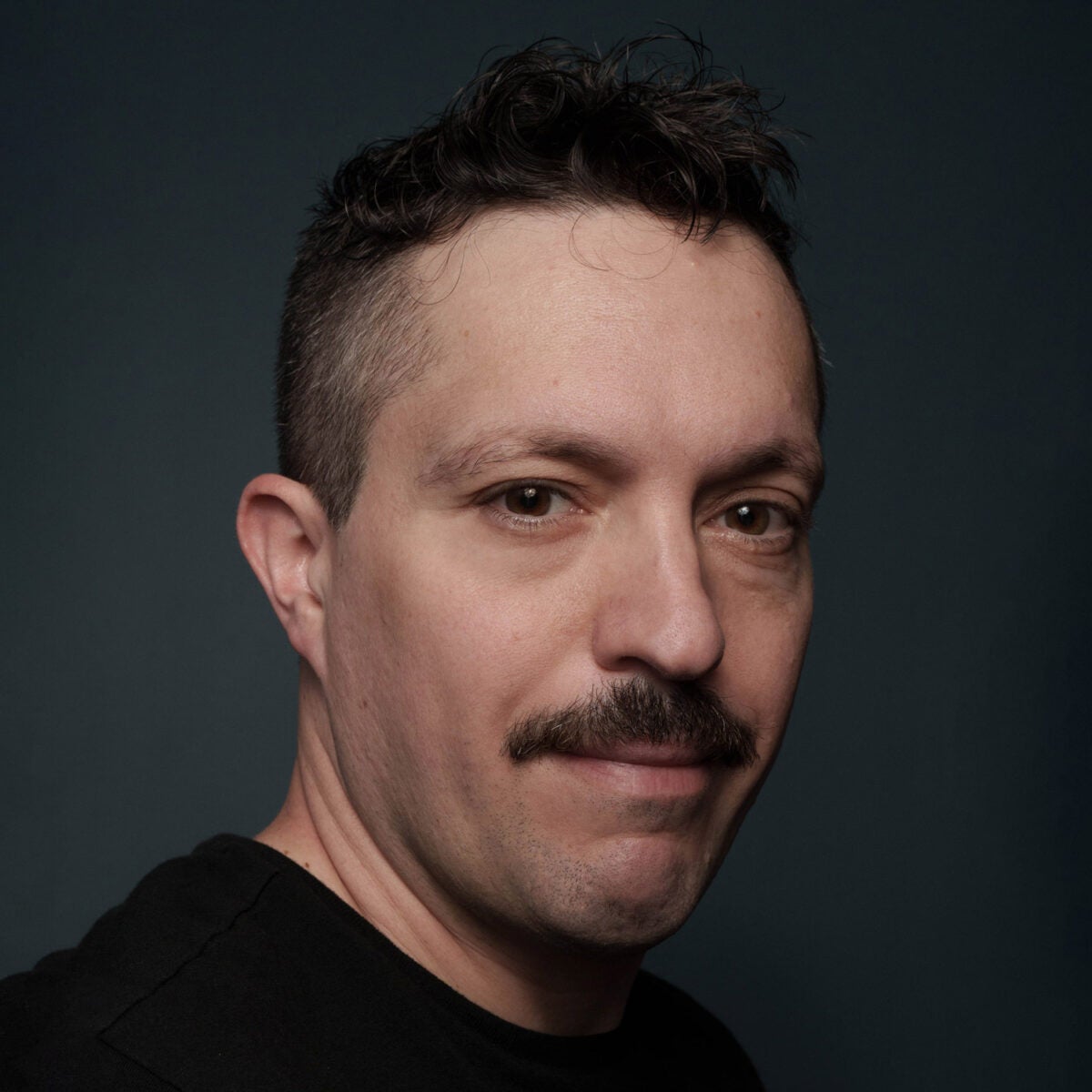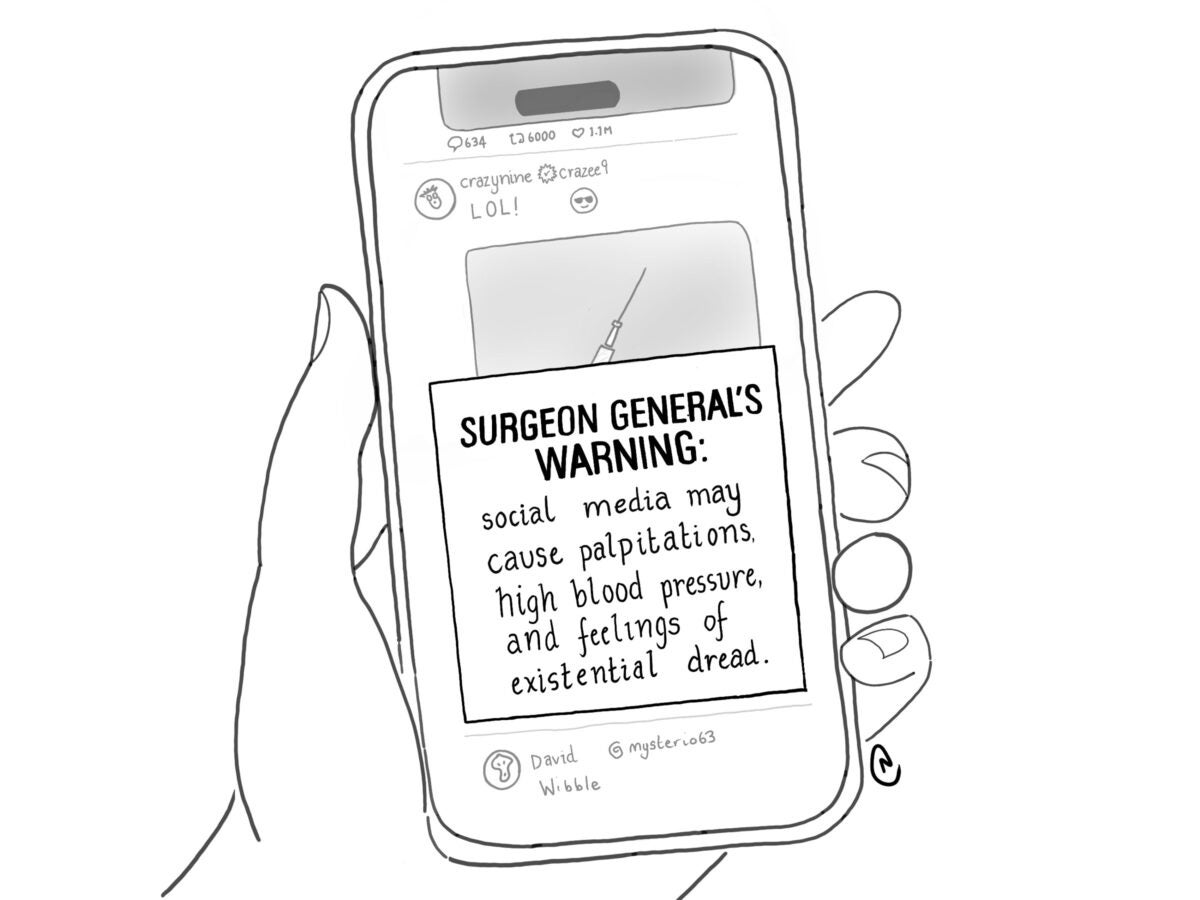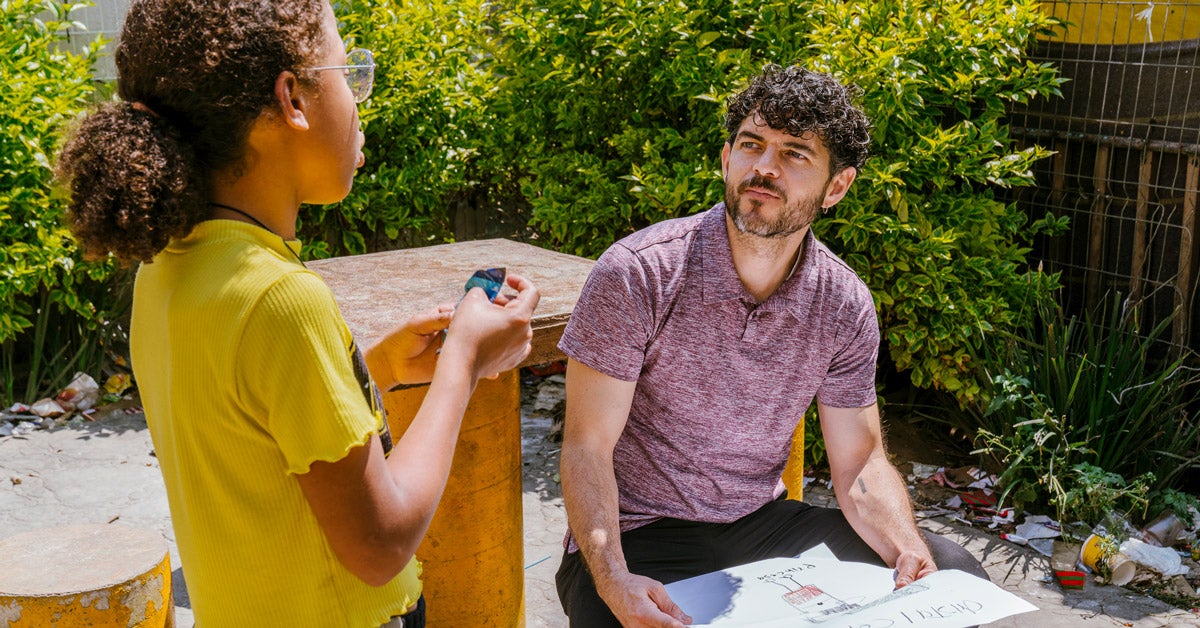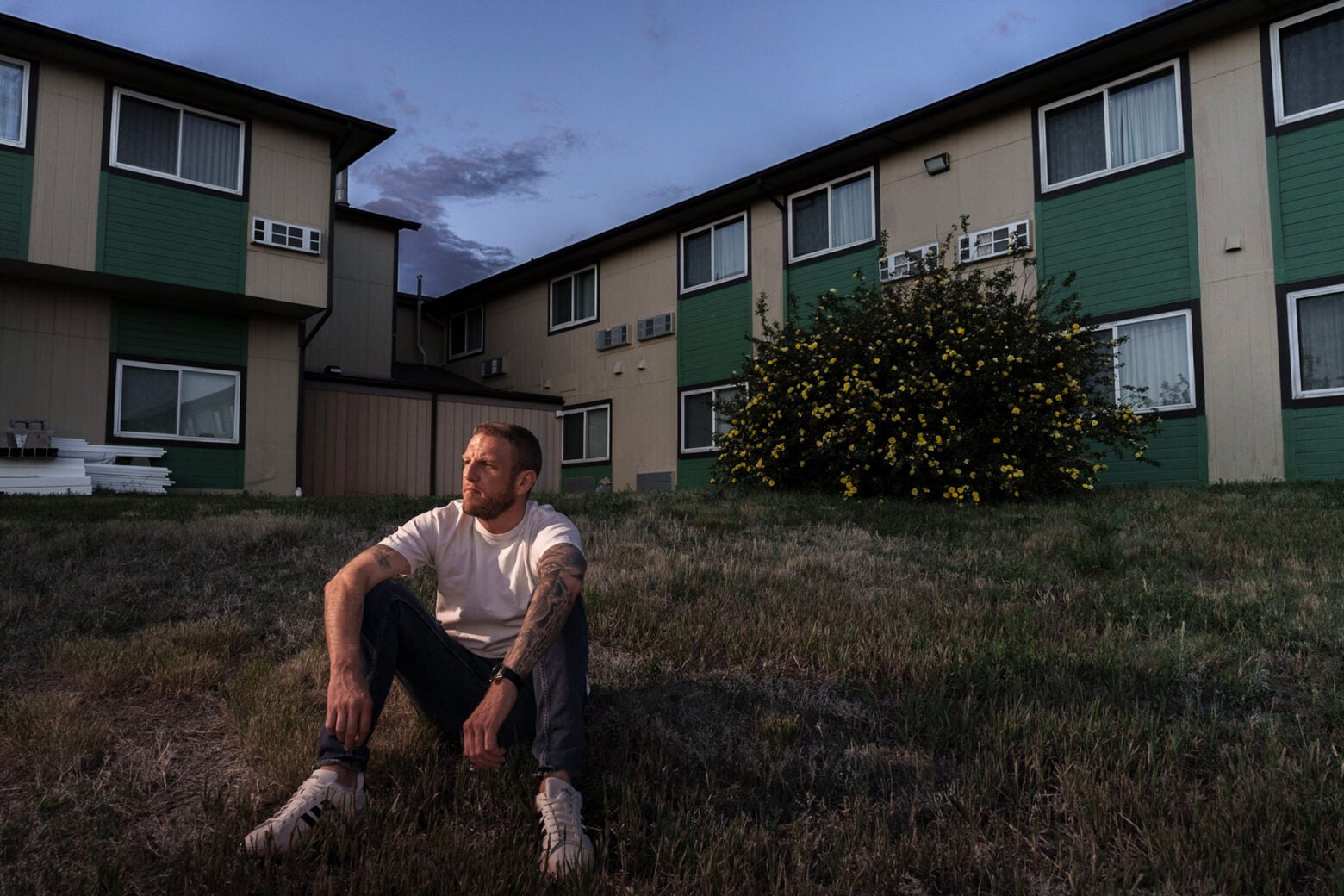
Feature
One man’s recovery is helping other families through the grief of overdose deaths
Levi Wardell has an unusual window on opioid grief. A recovering heroin addict, Wardell works as a funeral director in Cheyenne, Wyoming. In 2022, 124 people across the state died in drug-related deaths. In a small place like Cheyenne, Wardell and his colleagues often feel like they’re burying someone once a week.
Wardell has seen how stigma and guilt complicate the grieving process for families who lose someone to opioids. “It makes it harder because, a lot of times, people don’t want to share” that their loved one died of an overdose, he says. “They bottle it up more. It’s like they can’t actively talk about it.”
Sign up for Harvard Public Health
Delivered to your inbox weekly.
Grief from the loss of loved ones to overdose is an “overlooked emergency” in public health, according to the RAND Corporation. Earlier this year, the nonpartisan think tank attempted to measure the impact of deaths from overdose on loved ones left behind. Based on a nationwide survey, researchers estimated that one in eight Americans—around 40 million people—have had their lives disrupted by losing someone to overdose. There is otherwise little research on how this grief affects survivors, but so far data suggests that they maybe at higher risk of suicidal ideation and other mental health problems, including their own problems with substance use. A study in Norway, meanwhile, found that parents of children who overdosed were at greater risk of dying from a physical injury, suggesting a link between opioid grief and increased risks to physical health.
This grief is something that Wardell understands personally. Wardell, 35, was raised in Cheyenne by parents addicted to methamphetamine. In eighth grade, his father introduced Wardell to meth instead of getting him treated for ADHD, as his school recommended. Wardell became an alcoholic early in adulthood, and he began using heroin with his brother when he was 21, spiraling downward through stints in prison and rehab.
Wardell’s recovery began after his mother died from a stroke in 2019. Wardell got high instead of helping plan his mother’s funeral, a memory that haunted him. During his 12-step rehab program, when he reached the step for making amends, he dreamed that he worked in a funeral home. He woke up certain he was meant to work at the funeral home that buried his mother, the Wiederspahn-Radomsky Chapel of the Chimes Funeral Home. Eventually, he convinced the owner to give him a job.
Wardell has a special touch when working with families who have lost loved ones to addiction—and they’re appreciative. “It was like a saving grace to find Levi,” says the sister of one man whom Wardell helped lay to rest after an opioid overdose (HPH is withholding her name to protect her family’s privacy.). “He was like, ‘I know you guys.’”
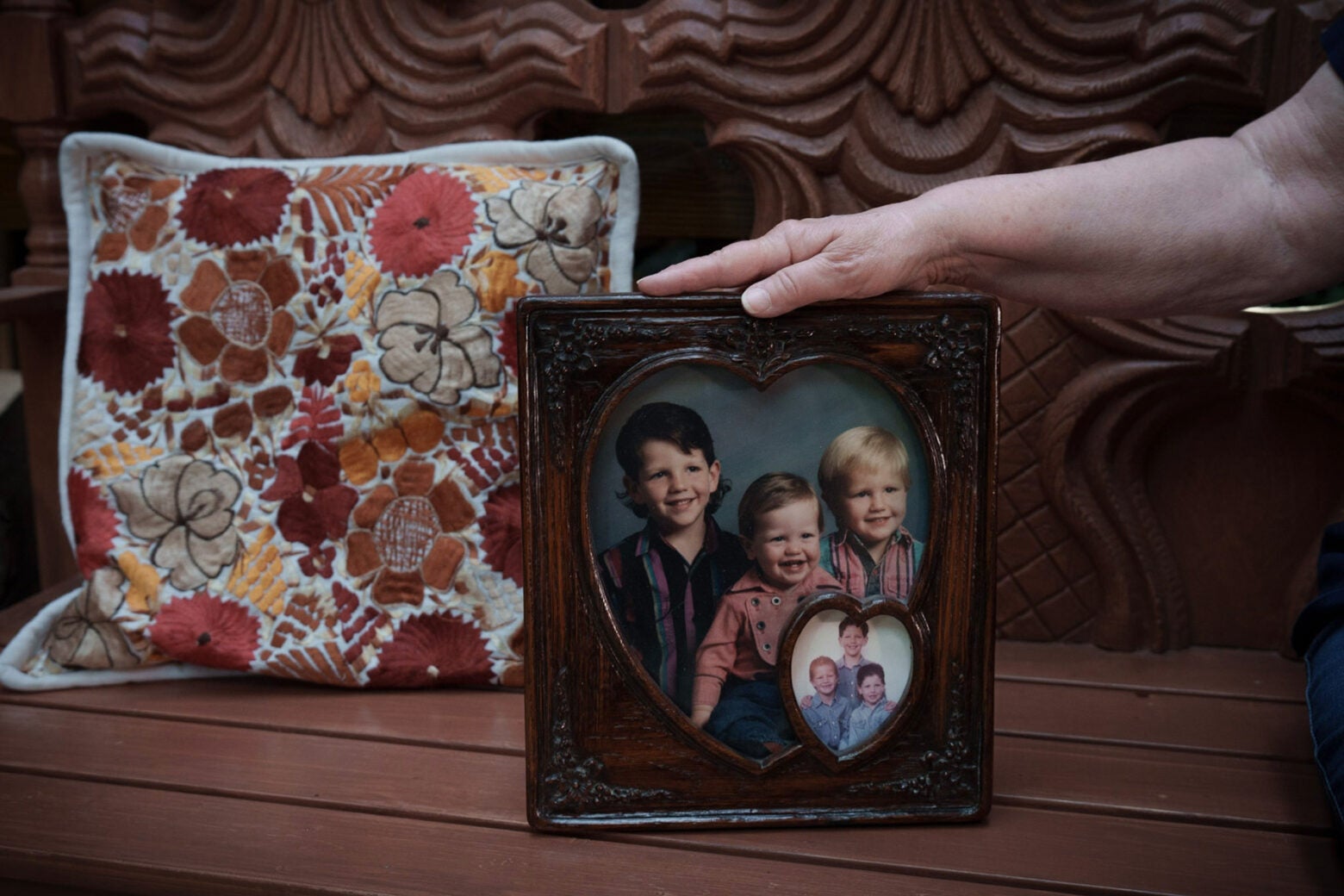
Levi Wardell’s grandmother, Cheryl Tottenhoff, rests her hand a picture of Levi, left, and his brothers, Taylor and Colton, both of whom are also opioid addicts. Colton and Levi went through rehab together following their mother’s death. Taylor is currently serving a seven-year sentence in federal prison.
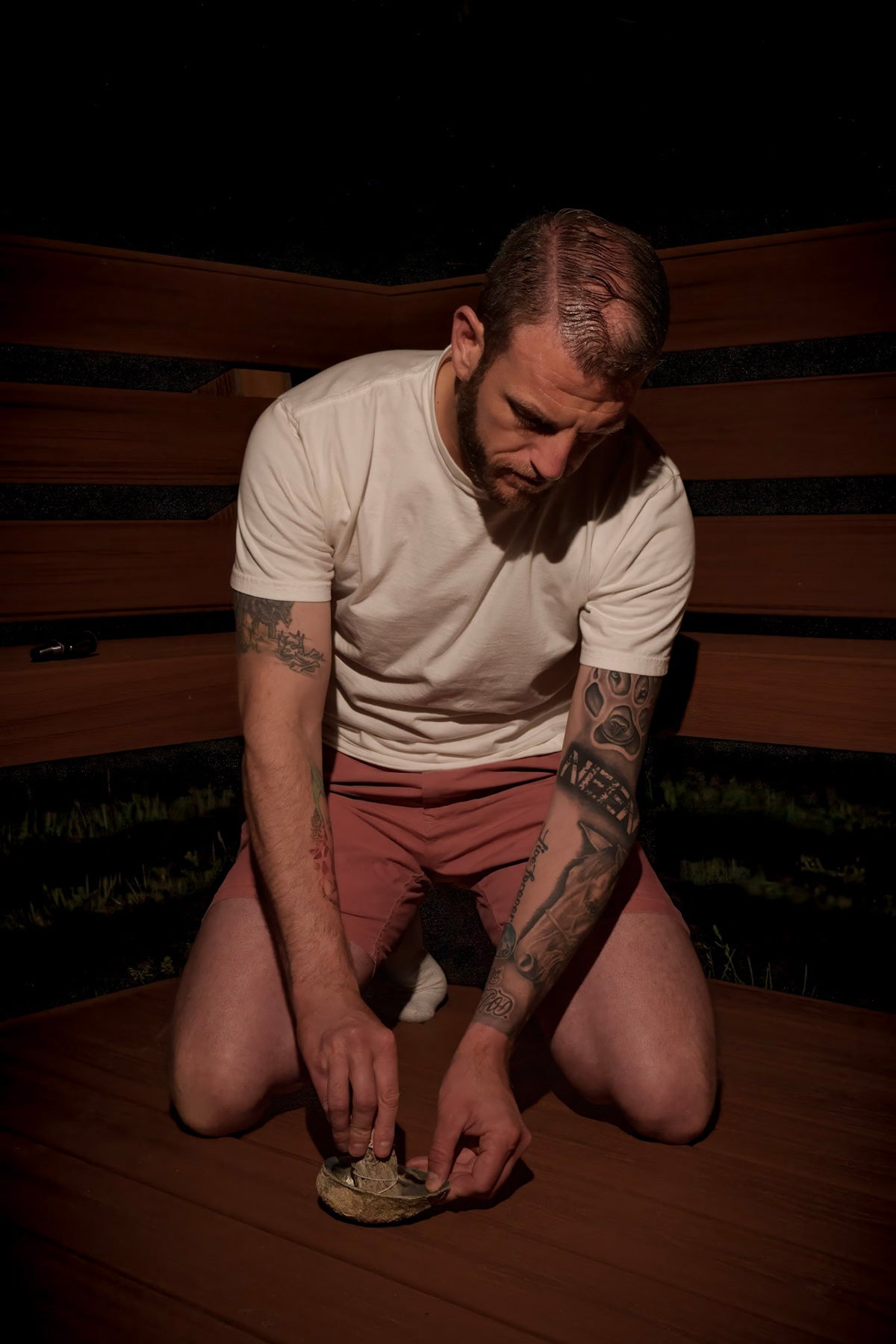
Levi Wardell got clean with help from a faith-based rehab program. He chose its Native American spirituality track, where he learned to perform the purification ritual called smudging. He performs a smudging ceremony every day in the early morning hours.

The parish hall of St. Joseph’s Catholic Church in Cheyenne, where Levi Wardell often manages funerals.
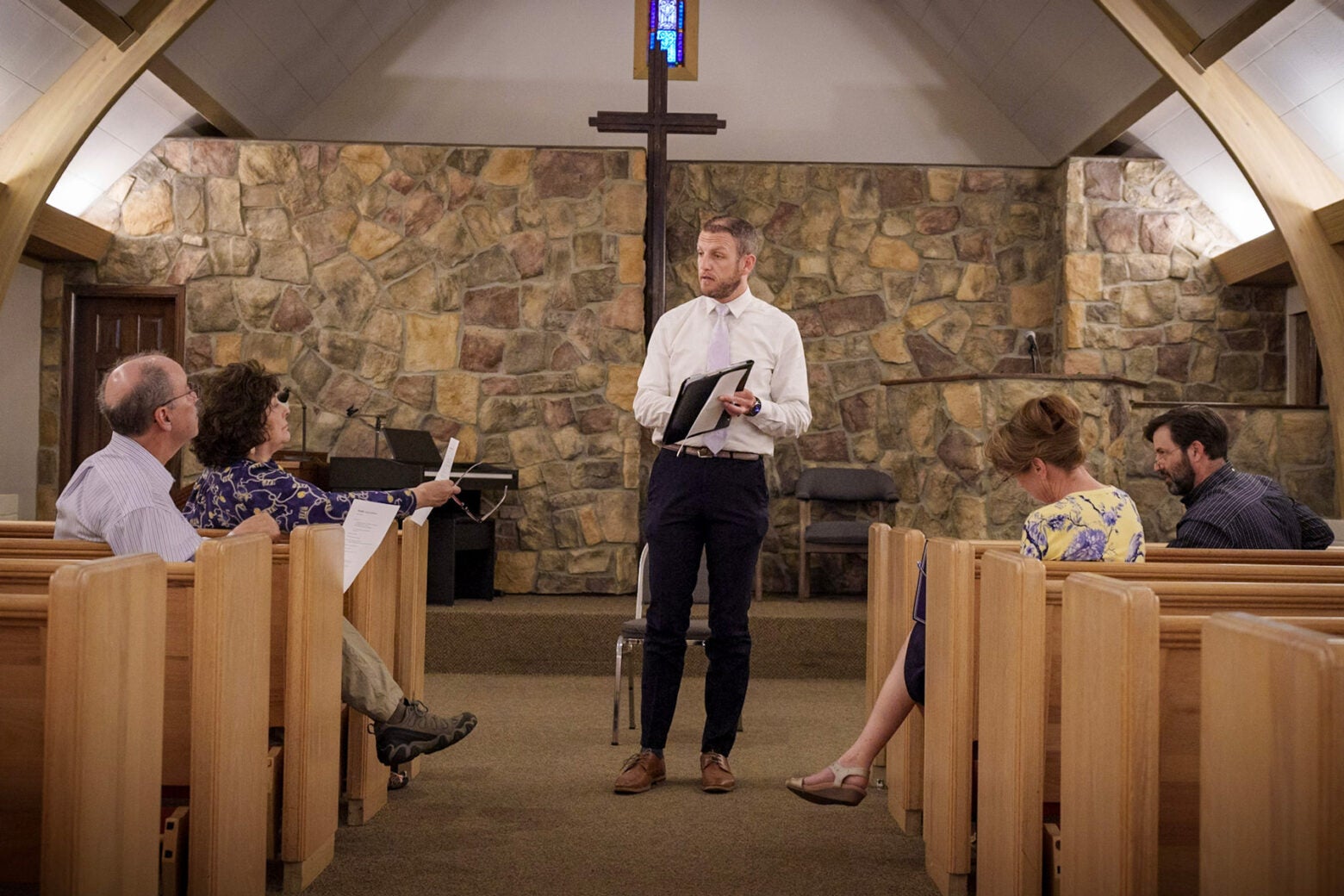
Levi Wardell talks with the family of Annelise Todd, who died in June at age 88. Todd was like a grandmother to Wardell’s addiction support group, and a mentor to him. Before she died, Todd asked him to officiate her funeral. Wardell had never spoken at a service before. “That’s a job for a pastor,” he remembers telling her. “Talk about how we're connected,” she replied. Connection is an important value for Wardell. “I've heard somewhere that the opposite of addiction is not sobriety. The opposite of addiction is connection,” he says.
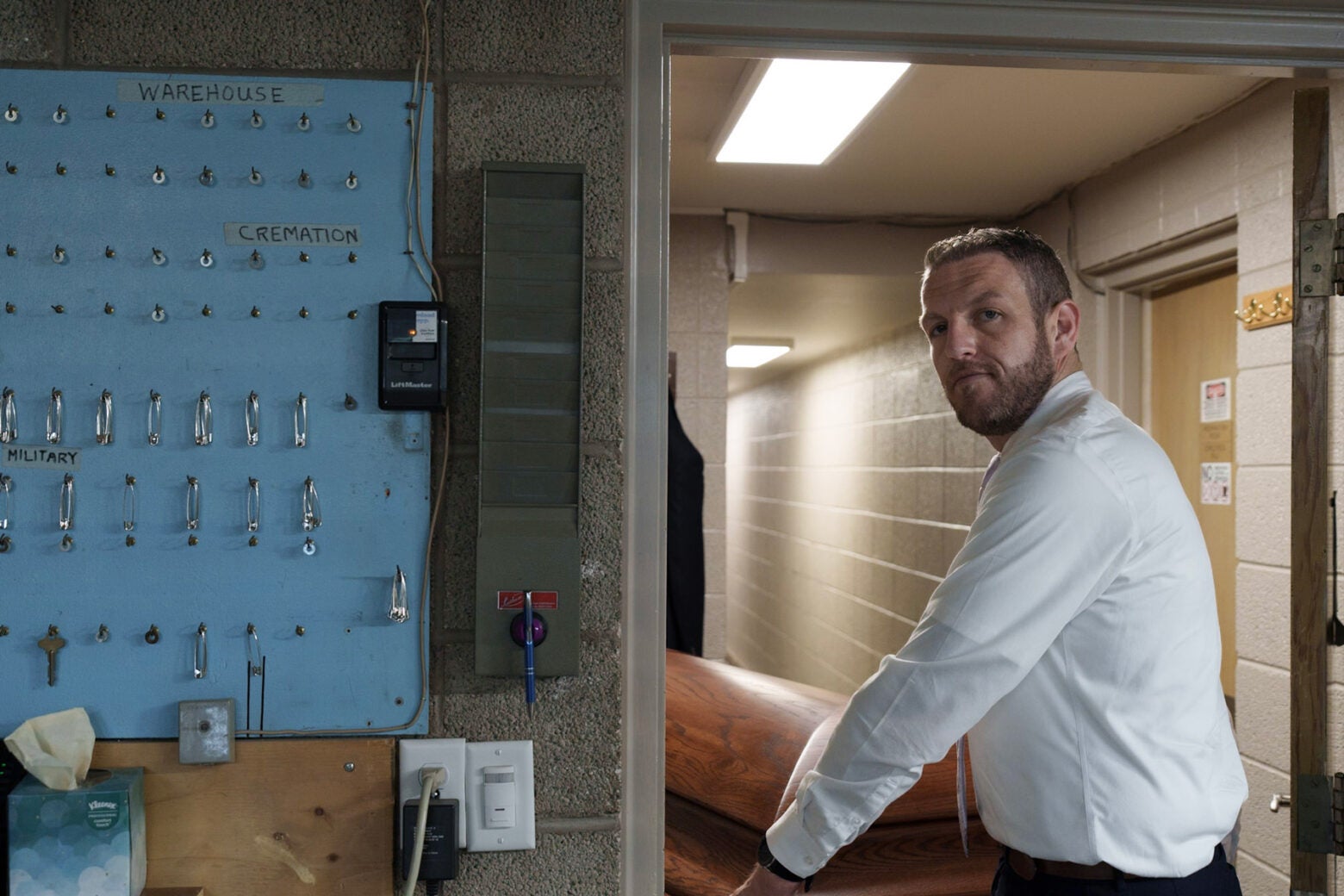
At the Wiederspahn-Radomsky Funeral Home, Levi Wardell prepares remains for transport to a cremation facility.
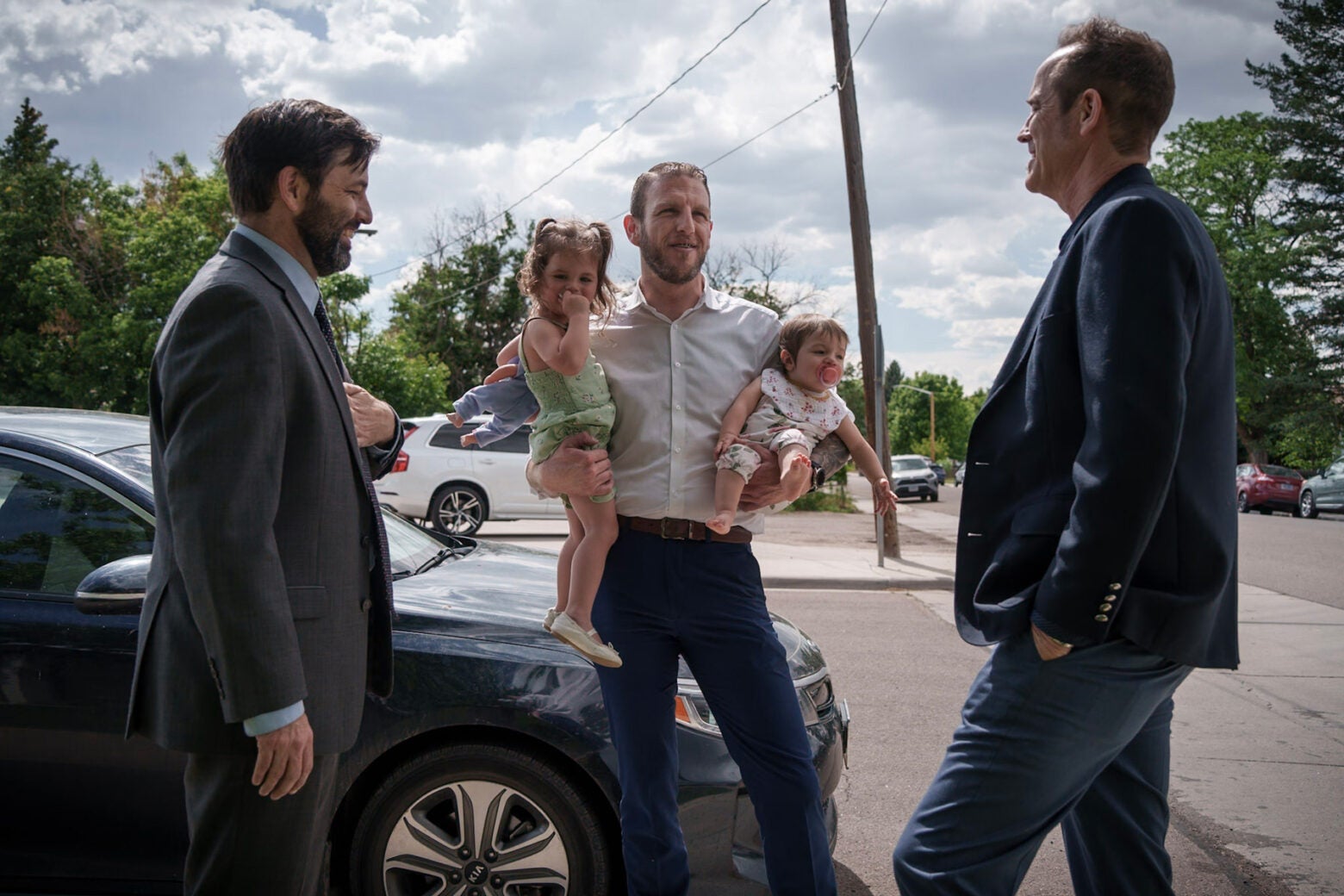
Levi Wardell talks to Tighe Fagan and Dan Kline, friends from his addiction support group, after the funeral of Annelise Todd. Wardell is holding his two daughters, Oakley (left) and Tatum (right). Sometimes, Wardell says, “I just imagine my little girl seeing my dead body, viewing me for the last time, and just knowing, “Dad chose to get high … dad chose drugs over us.”
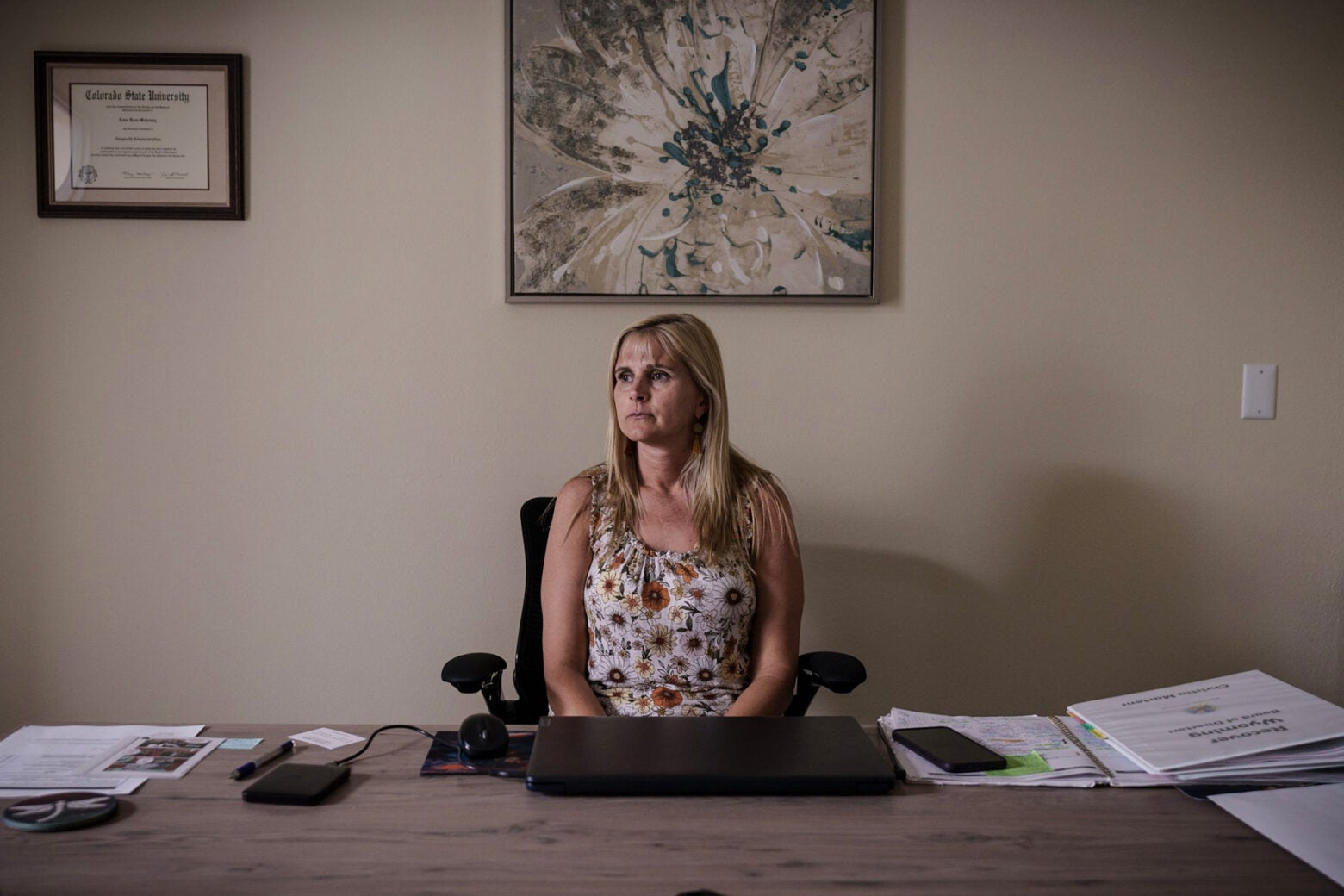
Lana Mahoney is the executive director of Recover Wyoming, a community center and social service organization in central Cheyenne for people in recovery; Levi Wardell is the vice-chair of the organization’s board. Mahoney says the absence of a Good Samaritan law in the state to protect people who help in overdose situations leads to unnecessary deaths. Without a law, some people panic and leave the scene; others simply aren’t prepared or empowered to intervene. “That does kind of perpetuate some of that grief and … causes people to kind of spiral downward,” she says.
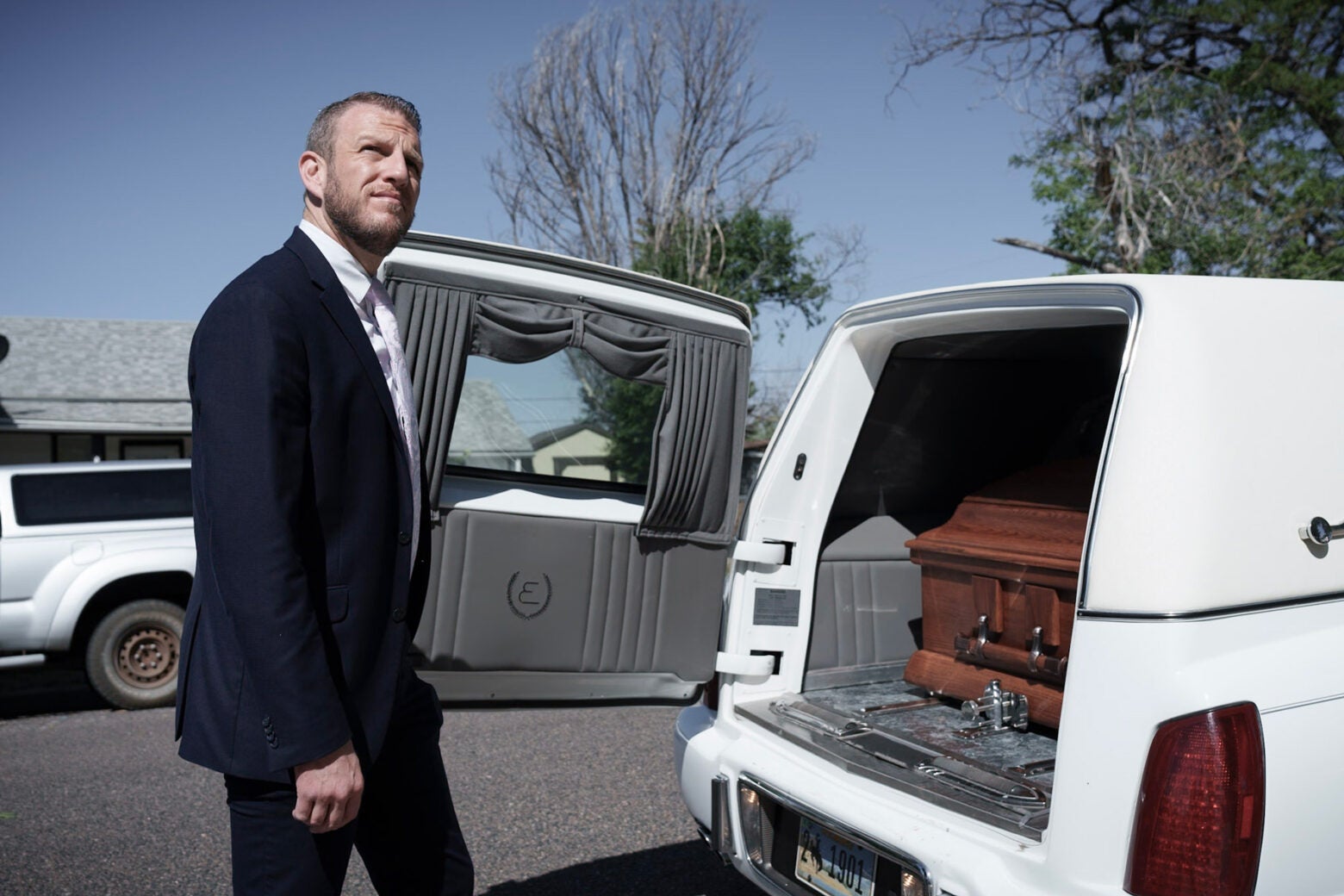
Levi Wardell prepares for a funeral at Cheyenne’s St. Joseph’s Catholic Church.
